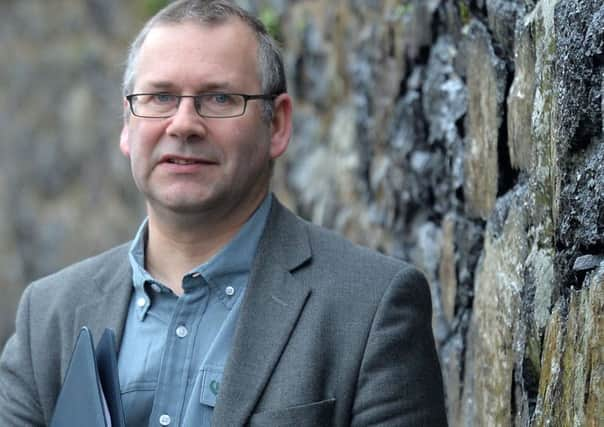'˜We could learn from other groups and organisations'


But he concedes that this can be difficult to do.
“I do think there are big challenges ahead in how the Order portrays itself and how it sees itself,” he says.
And he fully believes that this should neither be solely as a politically based body, nor a religious or faith based one.
Advertisement
Hide AdAdvertisement
Hide Ad“I think it is such an umbrella organisation that it can’t have a unified political role,” he says.
“In the 19th century members could be expelled for not having the same political views as the organisation. Thankfully that is not the case anymore, but the lesson is - leave the politics to the politicians. I don’t think being political is the way for it to go in the future. I believe it needs to focus on its two main elements, which are its cultural and religious elements, and I think that twin track is very important.”
However he stresses that being an organisation “with a Christian ethos is a wee bit different from being a religious organisation in the sense that some people believe it should behave like a church.”
He continues: “I don’t think that’s the role for it, and if it is the role it takes, then it has to bear in mind that churches are losing members. People are not joining religious organisations.
Advertisement
Hide AdAdvertisement
Hide Ad“I take the view that a person’s faith is very much personal to them, and I don’t think we should be trying to dictate to them aspects of that.
“I think we need to focus on things that are important, but we need to be aware of the realities around us as well, and if the Order has all these different rules and people either don’t join or drift off because of them, then they lose the ability to make an impact on society.
“It will become like the Orange Order in different parts of the world where it is struggling to the point that it is not really relevant anymore, and we don’t want to see that happening here. But I have always said to people that we should never imagine that it couldn’t happen here.”
Aside from issues like politics and religion, Dr Hume says that more general realities like plain lack of time due to the fast pace of modern day life pose challenges for the Order as well in terms of attracting people to its books.
Advertisement
Hide AdAdvertisement
Hide Ad“The Orange needs to define its strategy, and learn from how other organisations recruit people in changing social circumstances. We have a lot to learn from other groups. I think that sometimes perhaps we are too focused on ourselves - but there are very active communities out there and they face the same issues.”
Ultimately, David believes that there remains a huge “reservoir of interest and empathy” for the Orange tradition amongst the wider community - including members from a nationalist background, some of whom he describes as “critical friends, but still friends.”
Of course, at times, such acquaintances were more than critical. There were numerous times when the Institution came under fire from Republicans over the issue of contentious parades, and as one of the organisation’s key spokesmen, David had to be a defensive voice many times, something which he says he didn’t find difficult, because he believed that “flexibility on both sides would allow a very short parade.”
He also challenged Republicans over the shade of orange in the Irish tricolour, pointing out that surely it symbolised accommodating another community in spite of whether you agreed with their beliefs or not.
Advertisement
Hide AdAdvertisement
Hide Ad“I wanted to be challenging to people who needed to be challenged, whether internal or external forces,” he says without regret.
Similarly, he was not afraid to speak out against members of the Orange Order who brought the organisation into disrepute.
“There needs to be flexibility on both sides, and you can’t defend the indefensible. If people were doing things that weren’t very sensible, then you have to be honest about that too, and on occasions I was critical.”
He refused to be disrespectful about the Irish language, another subject which courted controversy at times.
Advertisement
Hide AdAdvertisement
Hide Ad“For example, I was asked to go and address comments that had been made about it, and I was always very conscious that there were lots of people in the Irish language community who were very genuine and have done a lot of work to preserve it and so on, and I don’t think we should disparage that. It is something they are passionate about and it is part of the heritage and culture of the country. I always try to look at both sides, and think well, would I like somebody coming to rubbish my culture?”